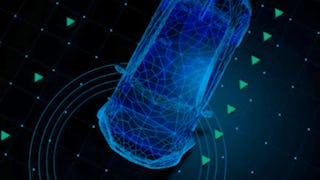Unlock the power of logical thinking and formal reasoning essential for success in computer science, data analysis, and software development with this dynamic course. Ideal for students, software engineers, data scientists, and IT professionals, this comprehensive program delves into logic foundations critical for advanced computing careers.

Entdecken Sie neue Fähigkeiten mit 30% Rabatt auf Kurse von Branchenexperten. Jetzt sparen.


Logic for Computer Science
Dieser Kurs ist Teil von Spezialisierung für Mathematics for Engineering

Dozent: BITS Pilani Instructors Group
Bei  enthalten
enthalten
Empfohlene Erfahrung
Was Sie lernen werden
Analyse computational problems to identify appropriate proof techniques and logical reasoning methods that best address their complexities.
Design comprehensive solutions to algorithm development challenges by synthesising and applying principles of propositional and predicate logic.
Evaluate system reliability by conducting model checking using temporal logics, and interpret the results to ensure system correctness.
Construct formal verification plans for algorithms and programs using Floyd-Hoare logics and justify their correctness through logical reasoning.
Kompetenzen, die Sie erwerben
- Kategorie: Computational Logic
- Kategorie: Verification And Validation
- Kategorie: Data Analysis
- Kategorie: Computer Programming
- Kategorie: Computer Science
- Kategorie: Logical Reasoning
- Kategorie: Theoretical Computer Science
- Kategorie: Analytical Skills
- Kategorie: Deductive Reasoning
- Kategorie: Computational Thinking
- Kategorie: Program Development
- Kategorie: Software Development
- Kategorie: Machine Learning
- Kategorie: Algorithms
Wichtige Details

Zu Ihrem LinkedIn-Profil hinzufügen
August 2025
113 Aufgaben
Erfahren Sie, wie Mitarbeiter führender Unternehmen gefragte Kompetenzen erwerben.

Erweitern Sie Ihre Fachkenntnisse
- Lernen Sie neue Konzepte von Branchenexperten
- Gewinnen Sie ein Grundverständnis bestimmter Themen oder Tools
- Erwerben Sie berufsrelevante Kompetenzen durch praktische Projekte
- Erwerben Sie ein Berufszertifikat zur Vorlage

In diesem Kurs gibt es 10 Module
In this module, you will learn the relevance of formal logics in computer science. You will understand the difference between syntax and semantics. The module will also introduce you to propositional logic and informally to its syntactic constructs.
Das ist alles enthalten
10 Videos4 Lektüren8 Aufgaben1 Plug-in
In this module, you will learn about the symbolic manipulation technique of natural deduction. The module will also discuss the different rules of natural deduction with examples.
Das ist alles enthalten
12 Videos3 Lektüren11 Aufgaben1 Plug-in
In this module, you will learn about state-of-the-art methods of resolution and Davis-Putnam-Logemann-Loveland (DPLL) methods to argue about the satisfiability of a propositional logic formula. We study the relevant characteristics of a logical theory, i.e., the consistency, soundness, and completeness, and comment on natural deduction as a proof technique on how it scores over these characteristics.
Das ist alles enthalten
14 Videos3 Lektüren13 Aufgaben
In this module, you will be introduced to model-based formal verification techniques, in particular, the model checking techniques. The module will informally discuss two popular families of temporal logics: linear temporal logic (LTL) and computation tree logic (CTL).
Das ist alles enthalten
13 Videos4 Lektüren12 Aufgaben
In this module, you will formally learn the LTL and CTL temporal logics. The module will also introduce you to the algorithms used for model checking over these algorithms. The module will further explain fundamental system properties, such as invariance, safety, and liveliness. Furthermore, the module will give provide you insight into how to encode natural language sentences into LTL and CTL formulas.
Das ist alles enthalten
13 Videos5 Lektüren12 Aufgaben1 Plug-in
In this module, you will learn the need for predicate logic and how to express statements in predicate logic. You will also learn about the syntax of predicate logic and the fundamentals behind writing proofs in predicate logic. You would also learn the concept of substitution and the difference between the free variables and bound variables. You will also get introduced to basic predicate logic rules that are used for proving sequents.
Das ist alles enthalten
23 Videos4 Lektüren22 Aufgaben
In this module, you will learn to apply the proof rules of natural deduction to prove sequents in predicate logic. The proof rules that you would learn include: Universal Quantifier Elimination, Existential Quantifier Introduction, Universal Quantifier Introduction and Existential Quantifier Elimination. You would also learn to identify which specific rules to apply for writing proof of a given sequent.
Das ist alles enthalten
17 Videos3 Lektüren5 Aufgaben
In this module, you will learn about semantics and model interpretations in predicate logic. You would also learn about the satisfiability and validity of predicate logic formulas, along with the undecidability of validity. You would also learn about the limitations of first-order predicate logic and how second-order predicate logic is useful in such cases.
Das ist alles enthalten
20 Videos4 Lektüren19 Aufgaben
In this module, you will learn how to formally verify programs written in imperative style. More specifically, you will learn formal methods to verify assignment statements, sequence of statements, conditional statements, and iterative statements. You will also learn the formal method to verify whether a given program terminates or not.
Das ist alles enthalten
16 Videos5 Lektüren10 Aufgaben
In this module, you will learn to prove the total correctness of various commonly used algorithms such as computing the power of two numbers, finding an element from an unsorted array, and selection sort. You would also learn to deduce loop invariants for programs of the above computational problems and prove that these programs terminates.
Das ist alles enthalten
11 Videos3 Lektüren1 Aufgabe
Erwerben Sie ein Karrierezertifikat.
Fügen Sie dieses Zeugnis Ihrem LinkedIn-Profil, Lebenslauf oder CV hinzu. Teilen Sie sie in Social Media und in Ihrer Leistungsbeurteilung.
Dozent

Mehr von Algorithms entdecken
 Status: Vorschau
Status: VorschauUniversity of Leeds
 Status: Vorschau
Status: VorschauStanford University
 Status: Kostenloser Testzeitraum
Status: Kostenloser TestzeitraumUniversity of Colorado Boulder
 Status: Kostenloser Testzeitraum
Status: Kostenloser TestzeitraumDeep Teaching Solutions
Warum entscheiden sich Menschen für Coursera für ihre Karriere?





Neue Karrieremöglichkeiten mit Coursera Plus
Unbegrenzter Zugang zu 10,000+ Weltklasse-Kursen, praktischen Projekten und berufsqualifizierenden Zertifikatsprogrammen - alles in Ihrem Abonnement enthalten
Bringen Sie Ihre Karriere mit einem Online-Abschluss voran.
Erwerben Sie einen Abschluss von erstklassigen Universitäten – 100 % online
Schließen Sie sich mehr als 3.400 Unternehmen in aller Welt an, die sich für Coursera for Business entschieden haben.
Schulen Sie Ihre Mitarbeiter*innen, um sich in der digitalen Wirtschaft zu behaupten.
Häufig gestellte Fragen
To access the course materials, assignments and to earn a Certificate, you will need to purchase the Certificate experience when you enroll in a course. You can try a Free Trial instead, or apply for Financial Aid. The course may offer 'Full Course, No Certificate' instead. This option lets you see all course materials, submit required assessments, and get a final grade. This also means that you will not be able to purchase a Certificate experience.
When you enroll in the course, you get access to all of the courses in the Specialization, and you earn a certificate when you complete the work. Your electronic Certificate will be added to your Accomplishments page - from there, you can print your Certificate or add it to your LinkedIn profile.
If you subscribed, you get a 7-day free trial during which you can cancel at no penalty. After that, we don’t give refunds, but you can cancel your subscription at any time. See our full refund policy.
Weitere Fragen
Finanzielle Unterstützung verfügbar,

